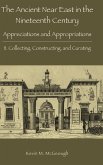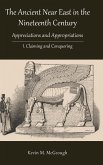Always spoken for, never speaking. Always the object of discourse, never the subject. Constant focus upon Israel in the biblical texts by the interpretative tradition in the modern context has resulted, whether consciously or not, in the eclipse of voices of Israel's Palestinian neighbors. Interpretations reinforce the liminality of ethnic groups like the Edomites, Moabites, Ammonites, and Samaritans effected initially through re-presentation. Stereotyping becomes an ethno-typing strategy that establishes the presumed superiority of 'Israel', the identity construction of the 'others' as anything but superior, and the placement of each group stereotyped on the 'border'. A postcolonial perspective, however, reveals that the focus of the commentary tradition extends liminality beyond the temporal. This study brings to speech the constructed voices of marginalized ethnic groups by juxtaposing those of fifth-century Yehud with those of nineteenth-century America placed there by stereotypic re-presentations. The examination of these re-presentations, though they intend to establish separation through an identity of difference, reveal instead a reflection of the identity of 'self' within 'other' despite efforts by an ethnic group identifying itself as 'Israel'.








